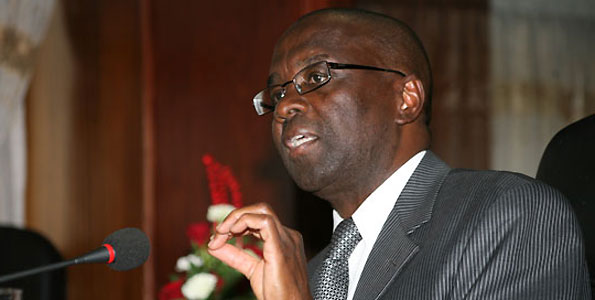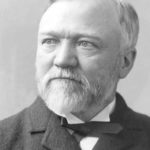
The course, the first of its kind in Africa, prepares students for careers in diverse fields
Nairobi-Kenya-Public policy practitioners and students in Africa now have a chance to study a specialised masters’ course offered in twelve universities, and uniquely designed to meet the continent’s needs, which was launched in Nairobi, Kenya today.
The Master of Research and Public Policy (MRPP) has been developed over the last three years through collaboration between the Partnership for African Social and Governance Research (PASGR) and 12 African universities.
The course, the first of its kind in Africa, prepares students for careers in diverse fields, including: government, universities, think tanks, research organisations, civil society organisations, media and development agencies.
The course content was developed by academics from the partner universities, with input from scholars from respected European public policy institutions.
It equips students to identify and address national developmental challenges and issues that affect people in their daily lives, such as security, management of natural resources, hunger, HIV/AIDS and women’s empowerment.
Students taking up the two-year full time course have a choice of two career pathways: Research and Policy Practice.
“The Research option familiarises students with the use of data to undertake policy research or pursue advanced scholarship, while Policy Practice equips students to use research to influence, inform or shape public policy,” said Prof Tade Akin Aina, the Executive Director of PASGR.
He added “MRPP is one of the key pillars of our community of practice and thought working together to build excellence in research, training and higher education for public policy in Africa”.
The launch event in Nairobi was presided over by Kenya’s Cabinet Secretary for the National Treasury, Mr Henry Rotich, and the Chief Justice, Dr Willy Mutunga. Other dignitaries at the event were: The deputy chair of the Education Committee in the Kenyan Parliament, Hon Julius Kibiwott Melly, vice chancellors and academics, and PASGR Board member Amb Prof.Judith Bahemuka.
It was also attended by students already enrolled in the programme, researchers and policy practitioners from NGOs, development partners and PASGR staff.
Speaking before officially launching the programme, Mr Rotich noted that effective public policy could only be a reality if the people in charge possessed a deep understanding of the challenges that face Africa, based on solid and credible research.
“Having seen the course content of this new programme, I have no doubt the MRPP will contribute towards efficient, effective and transparent public policy,” he said. Drawing from his personal experience while beginning his postgraduate studies, Mr Rotich expressed his intent to lead a public service fellowships initiative through which students could seek funding to undertake the MRPP.
The programme has already been rolled out in eight universities where 150 have enrolled, with the first cohort set to graduate next year. It is being offered in Egerton and Maseno universities in Kenya; University of Dar es Salaam and Mzumbe in Tanzania; Jos, and Ibadan universities in Nigeria; and Ugandan Christian University and Uganda Martyrs University.
As he launched the programme, Kenyan Chief Justice Dr Willy Mutunga stated that research was key to identifying African interests, and that the continent’s interests should in turn inform Africa’s relations with the West.
Prof. Aina thanked the partnering universities for their diligence and contribution to the realisation of the programme.
“The MRPP is working, thanks to the efforts of everybody who has been there throughout the journey — my predecessor, the Steering Committee and PASGR colleagues,” he said. “For us at PASGR, the MRPP is special as one of the key pathways to building the next generation of public policy leaders and researchers in Africa”.
Academics and students who spoke during the launch gave accolades to the new programme, observing that it was already transforming teaching and learning at the universities.
They were full of praise for the innovative pedagogy, which embraces interactive teaching approaches, such as simulations, debates, role-plays and project-based learning, field experience and case studies.
Founder universities
The twelve founder universities are: University of Dar es Salaam, University of Ghana, University of Ibadan, University of Lagos, University of Jos, Egerton University, Maseno University, Mzumbe University, Uganda Christian University, Uganda Martyrs’ University, University of Sierra Leone and University of Botswana.
Course structure and delivery
The MRPP is a full-time two-year programme covered in four semesters, including field experience and thesis preparation.
The programme entails five courses in each of the two semesters during the first year. This is followed by a long break for field experience in a policy or research institution during which students refine research ideas and start data collection. In the second year, three courses are offered, while the rest of the time is devoted to thesis development.
About PASGR
The Partnership for African Social and Governance Research (PASGR) is an independent, non-partisan pan-African not-for-profit organisation established in 2011 and located in Nairobi, Kenya. Currently engaged in more than 12 African countries, PASGR works to enhance research excellence in governance and public policy that contributes to the overall wellbeing of the citizens.
In partnership with individual academics and researchers, higher education institutions, research think tanks, civil society organisations, business and policy communities both in the region and internationally, PASGR supports the production and dissemination of policy relevant research; designs and delivers suites of short professional development courses for researchers and policy actors; and facilitates the development of collaborative higher education programmes.







